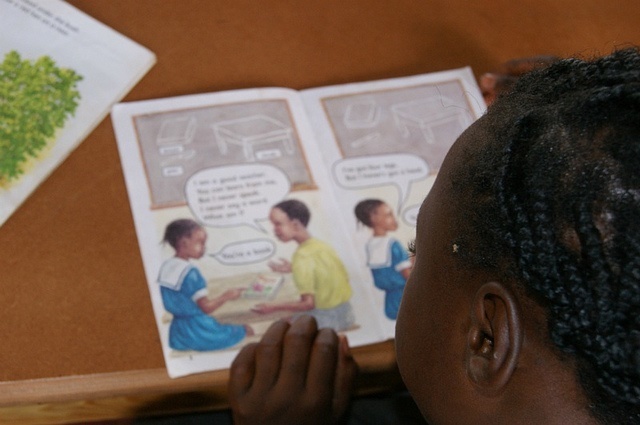A growing number of black families are choosing to homeschool their children, the U.S. Department of Education reports.
Although increasing numbers of black families are choosing to homeschool, RiShawn Biddle, who runs Dropout Nation, an education news and policy magazine, says it is difficult to know exactly how drastic the increase has been.
“There are more black families that are taking up homeschooling,” Biddle said. “The question is how many. Currently the data we have on homeschooling comes from the U.S. Department of Education, which reports that 139,000 black children aged five through 17 were homeschooled in [the] 2011–12 [school year]. This is a 127 percent increase over levels in 2007.”
Biddle says some traditional public school administrators have been trying to decrease the number of students who drop out by counseling students to attend other schools or be homeschooled.
Fleeing Low-Quality Teaching
“Certainly black families share many of the concerns white families have about the quality of education for their children,” Biddle said. “Even in suburban districts such as Fairfax County and Montgomery County outside of [Washington, DC], black families are finding that the quality of teaching and curricula can be as low as in big-city districts.
“At the same time, black families have other concerns,” Biddle said. “Particularly for black families who are first-generation middle-class, they have found that traditional districts do poorly by black children, especially young black men. As University of Michigan sociologist Karyn Lacy detailed in her book Blue-Chip Black, black families find themselves battling with teachers and school leaders in the suburbs [as well as in big cities] so that their kids can take AP classes, gifted-and-talented courses, and other classes that help them succeed in college and in life.”
Biddle says black families are using homeschooling to ensure their children receive an adequate education.
“For these families, homeschooling and other forms of school choice are ways for them to help their kids get the education they need and deserve,” Biddle said. “At the same time, it isn’t just about education. Black families want their children to build pride in themselves and in their cultures. This includes learning about successful role models who look like them. This desire for self-pride, a reason why historically black colleges and universities continue to exist and why charter schools have thrived in urban communities, is also why some black families homeschool.”
Becoming Alternative Schools
Annise Mabry says she decided to homeschool after school officials responded poorly to the severe bullying of her daughter. Her children, now 11 and 17, are both being homeschooled.
“Personally, I think parents just got tired of asking for the educational system to understand their children, so they became the educational institution that they wanted to see,” Mabry said. “We have participated in a field trip to Biltmore Estates to learn about the farm-to-table movement, studied 1800s life in historic Roswell, walked the path of the Birmingham Civil Rights marches, visited a wildlife rescue, and toured the historic home of Laura Ingalls Wilder. These are all trips that we could have taken on a weekend, but it would have felt rushed. The fact that we were able to complete these trips as part of our homeschool curriculum made it more enjoyable.”
Overuse of Harsh Discipline
In a 2008 study, a team led by John Wallace of the University of Pittsburgh found young black men in the 10th grade are 30 percent more likely to be sent to a dean’s office for punishment than their white male peers, and 330 percent more likely to be suspended afterward than white counterparts.
“The reality for black families is that American public education can be damaging to their children,” Biddle said. “This is especially true when it comes to overuse of harsh school discipline such as out-of-school suspensions and zero-tolerance policies.”
Heather Kays ([email protected]) is a research fellow with The Heartland Institute and is managing editor of School Reform News.
Learn More:
John M. Wallace, Jr., Ph.D., Sara Goodkind, Ph.D., Cynthia M. Wallace, and Jerald G. Bachman, “Racial, Ethnic, and Gender Differences in School Discipline among U.S. High School Students: 1991-2005,” 2008: https://www.heartland.org/policy-documents/racial-ethnic-and-gender-differences-school-discipline-among-us-high-school-student





